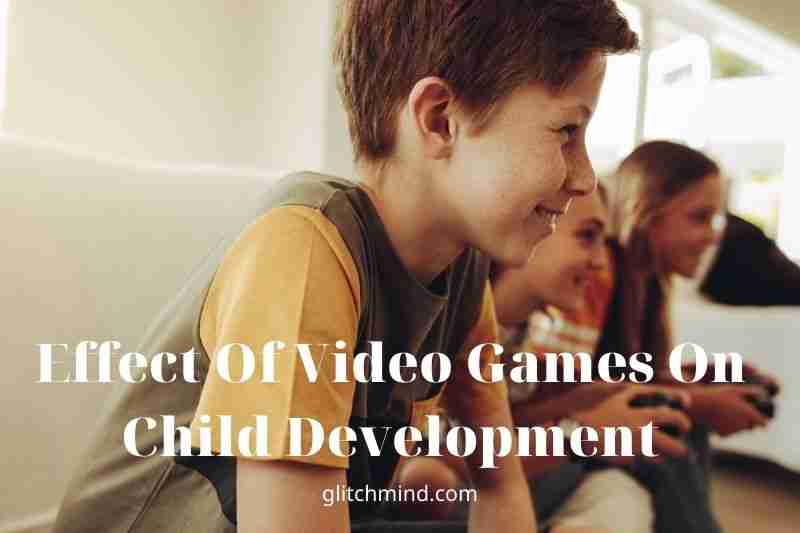It is no secret that children today spend a large amount of their free time playing video games. While there is some debate about the Effect Of Video Games On Child Development, many experts believe that video games can have a positive impact on a child’s cognitive and social skills. For example, video games can help children develop problem-solving and hand-eye coordination skills. Additionally, video games can promote social interaction and teamwork.
What do we already know?
Many children live with digital media and video games. According to surveys, young children aged 2-4 years old play video games on average for 20 minutes each day. As children get older, this increases.
Children aged 5-8 are most active for around 40 minutes per week, while children aged 8-12 spend an average of 80 minutes each day.
Schools are taking advantage of video games’ popularity by including educational video games in their lessons. One school even created a whole curriculum based on videogame design and play.
Despite the popularity of video games and their increasing use in education, research has not been done on their effects on brain development.
What were the results of their research?
These researchers used data from previous studies to determine if there are trends in video game use in children. The researchers then make recommendations about policies regarding video game use in education.
What did they discover?
Researchers found that interactive apps and video games had a positive impact on children’s brain development. But, only violent or entertaining media had a detrimental effect on child brain growth.
One study found that preschoolers can learn math skills, literacy, and coding through educational games. A second study that looked at characters in educational games found that children can learn more from building a relationship with them. Exergames are games that involve movement and exercise. A study found that these games can improve decision-making skills and overall brain function.
Numerous studies have examined the impact that watching educational TV with parents can have on their children’s learning. Children learn more when parents interact with the content (e.g., by asking questions and praising correct answers) with their children.
The American Academy of Pediatrics recommends that parents watch educational programs with their children. Parents can now encourage their children to play educational video games with them to improve learning.
Most of the research on video games was conducted with children and teens. The authors point out that little information is available about video games’ impact on middle childhood (6-12 years). They encourage further research.

Positive Effect Of Video Games On Child Development
1. Children learn problem-solving skills that will enhance creativity and help them be more creative
Children can use games like “Legend of Zelda,” which allow them to be creative as they face new challenges. Link, the game’s main character, searches for, navigates, and plans to find the best way to progress through the game. Recent games such as “Bakugan: Defenders of the Core”, which involve planning, offer opportunities for problem-solving.
“Minecraft,” an open-world popular game, looks like Lego. It uses Modding to customize the appearance of its characters. They can also create new worlds or levels. Modding allows players to better understand the game’s structure and gives children a way to express themselves creatively.
2. Teach children about history and culture
There are some games that focus on historical events from real life, like:
- Age of Empires
- Civilization
- Mythology
These games can stimulate a child’s interest in world history, geography and economics, ancient cultures and international relations.
For researchers James Gee and David Shaffer, I will quote:
“When parents help transform Age of Mythology into an island of expertise, linking it to books and museums about mythology, culture, and geography, children learn a wide variety of complex language and content that prepares them for learning of a more complex and deeper kind.”
These games allow children to create and share custom maps and other content. This helps them develop their technical skills.
3. Helps children make friends
Contrary to popular belief, video games can be a way for children to make new friends and engage in social activities. Your children can make new friends through video games. Your children can develop their peer network early on through video games – online or locally.
Research has shown that boys see games as a common topic of conversation with their peers.
Another study found that children with mild learning disabilities are more likely to play video games to make new friends.
Children’s ability to make new friends online is carried over into their teens. According to a Pew Research Centre report, more than half (50%) of teens have made friends online. A third of those people claimed that they made new friends online while playing video games.
4. Lets children share the joy of competition
It is normal for boys and children to try to get recognition and status.
Focus group research with teens shows that “I like to compete against other people and win” is the most common reason they play video games, particularly for boys.
Video games allow children to express their competitive natures, and they can help them excel in other areas.
5. Children learn leadership skills
Children play in groups and take turns leading or following the game, depending on their skills.
Nick Yee, Palo Alto Research Centre’s director of research, has shown that video games can be used to encourage positive behavior change.
Online group games give teens the feeling that they have gained leadership skills such as persuasion and mediation.
Children can also play online multiplayer games with children from different countries and ages. They can also participate in mixed-age groups.
6. Encourages children to share their knowledge with others
One-third of children surveyed said that they play video games partly because they like to help others. During the research, one boy’s father revealed that his son is most interested in solving problems within the game. It all comes down to how you get from A to B, collect certain items, and combine them to make the game work.
7. Even years later, video games can improve children’s memory
Even if they stop playing video games, video games can help children improve their memory. According to new research by the Universitat Oberta De Catalunya, video games can help improve cognitive abilities in the brain.
This study included 27 adults who had never played video games before. Memory tasks were more manageable for those who played video games before becoming adults. Participants had to be able to manipulate and mentally retain information to achieve the desired result.
Participants who had never played video games as children didn’t see any similar benefits. And Participants who had never played video games as children had more difficulty with memory tasks than those who did.
Children who had played video games as children were also more adept at processing 3D objects when they first started the experiment. This advantage was eventually eroded when the participants completed their video gaming training. Both groups displayed similar performance levels at that point.

Video games can hurt the development of children
Video games can hurt children’s development, particularly when it comes to violence, antisocial tendencies, behaviors, and aggressive thoughts and emotions.
1. Encourages violent behavior in children
Anderson & Bushman’s study found that people who see a lot of simulated violence (like those in video games) can become more resistant to it and more likely to commit violent acts.
American Psychological Association (APA) also concluded that violent gameplay and aggression are inseparable. They find no evidence linking violent video play with criminal violence.
Henry Jenkins, a researcher at the Massachusetts Institute of Technology, points out that games such as Mortal Kombat and Doom, Grand Theft Auto and Death Race are popular and coincide with a decrease in juvenile crime. He concluded that teens could forget about the emotional effects of games once they are over.
Teenagers who commit violent crimes while playing video games, such as those in the Newport and Columbine shootings, are not uncommon.
Interactive video games are responsible for the worsening effects of violence on children. Many games reward children for being violent, so the violence is repeated. The child controls violence, such as shooting, stabbing, and punching.
Active participation combined with repetition and rewards is a powerful tool for learning behaviors.
2. Promoting social isolation or antisocial behavior
Children can become socially isolated if they spend too much time playing video games. Children may be less inclined to engage in other activities, such as reading, homework, or sports.
Researchers at North Carolina State University, New York and the University of Ontario Institute of Technology discovered that online gaming does not replace offline social life but expands it. Gamers are not considered to be lonely.
Video games can be a great way to increase a child’s social life.
3. Discourages children from doing well at school
Studies have shown that children who spend more time playing video games are less successful at school.
Argosy University’s Minnesota School of Professional Psychology conducted a study that found video game addicts get lower grades. They also engage in destructive behavior such as fighting and arguing with teachers.
Another study shows that some people skip school to play video games. Some students admit that their video gaming habits can affect their school performance.
Moderation is important, just like other things in life.
How can you prevent video games from affecting your child’s development?
1. Get more involved in the play habits of your child
It’s a smart idea for parents to get involved in their children’s play habits. You don’t have to play with your children, but you should know what happens every time they log in.
Pew Research found that nine out of ten parents know their children’s games. 72% of parents said they verified the ratings before allowing their children to play video games.
Parents may also recognize when their children are playing too much. Nearly half of parents (46%) stated that they sometimes or always stop their children from playing games.
Other parents may also participate in their children’s entertainment. Around 31% said that they often play video games with their children.
Your child could be exposed to cyberbullying and sexual predatory online games. Ask your children to tell you what they are up to and watch their online interactions.
To learn more about the study, visit Pew Research’s site here
2. Establish boundaries
Parents need to set boundaries for their children. If they don’t, video gaming can become a bad habit. Your child should not spend too much time playing video games, especially when young. Please encourage them to strike a balance between playing and studying.
Are you having trouble motivating your child in school? These are our nine proven tips to help you boost your child to study.
I believe children are sponges, and they absorb everything around them. As educational and fun as video games can be, they can also be detrimental to your child’s development.
It isn’t easy to get your kids to stop playing video games with the new advancements in gaming consoles. The best thing is to get involved in your child’s activities as a parent. Get involved in exploring the various video games together. Your child will benefit significantly from your role as a role model who teaches them to balance the real and virtual worlds.
Read also:

